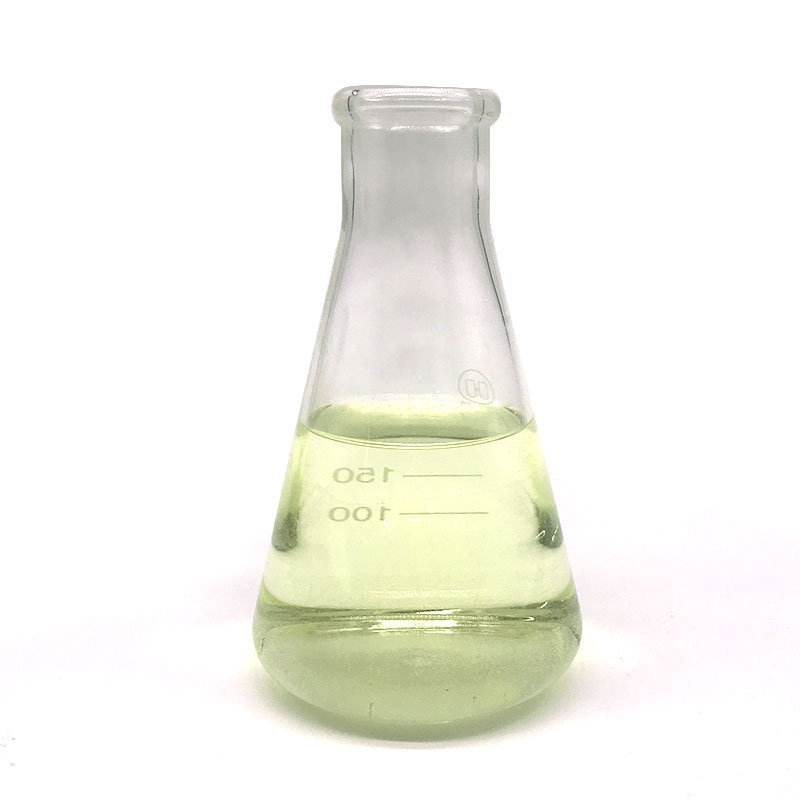-
Categories
-
Pharmaceutical Intermediates
-
Active Pharmaceutical Ingredients
-
Food Additives
- Industrial Coatings
- Agrochemicals
- Dyes and Pigments
- Surfactant
- Flavors and Fragrances
- Chemical Reagents
- Catalyst and Auxiliary
- Natural Products
- Inorganic Chemistry
-
Organic Chemistry
-
Biochemical Engineering
- Analytical Chemistry
- Cosmetic Ingredient
-
Pharmaceutical Intermediates
Promotion
ECHEMI Mall
Wholesale
Weekly Price
Exhibition
News
-
Trade Service
For most of the past 20 years, the treatment of genetic abnormalities in tumors, both in pharmaceutical companies and hospitals, and in capital markets, has flourished.
August 2017, Novartis' cell gene therapy Kymriah, which targets CD19, was approved by the FDA to treat B-cell pregenitor acute lymphoblastic leukemia, becoming the first personalized CAR-T therapy to be made from patients' autoimmune cells.
followed suit, Kite Pharma's Yescarta was approved by the FDA in October 2017 to treat relapsed or incurable large B-cell lymphoma, which led Gilead to buy the company for $12 billion.
approval of the two therapies and related deals have sparked enthusiasm for investing in countless start-ups working in cell and gene therapy (CGT).
Chart 1. Kymriah and Yescarta mechanisms signal the mechanism of action Source: pharmaceutical-technology.com, China Health Industrial Capital Research Center, on the face of it, pharmaceutical companies and research and development agencies appear to have put aside the search for new targeted cancer drugs.
this is not the case, pharmaceutical companies large and small continue to look for molecular drivers of cancer and develop drugs to stop them.
overall, three types of drugs dominate the pipeline of targeted cancer drugs.
first is to block tyrosinekinase, a cancer-causing kinase drug called tyrosine kinase inhibitor (TKI).
they formed the backbone of cancer drug development at the beginning of the 21st century and continue to drive interest in research and development today.
, cancer cells that initially responded to TKI evolved to circumvent them, a problem that has inspired a new targeted drug design to combat drug resistance.
, drugs that improve the immune system's ability to recognize and fight cancer, cancer immunotherapy, are growing rapidly.
's frenetic research into cancer-targeted therapies not only brightens the prospects for improving the quality of life for cancer patients, but also creates opportunities for capital markets to grow through a wave of targeted cancer treatment research and development and commercialization.
's growing pipeline of new cancer-targeting pharmaceutical companies, coupled with the large number of high-value deals over the past few years, shows continued interest in targeted cancer drugs in the pharmaceutical and investment community.
the number of cancer immunotherapy treatments in research increased by 16 per cent between 2018 and 2020 to 2,731, while the number of cancer treatments for non-immune targets increased by 3 per cent to 2,450, according to Informa, a BRITISH consultancy.
16 of the top 25 diseases covered by pharmaceutical companies are of different types, with breast, lung and colorectal cancer leading the way.
so what is driving the rapid development of cancer-targeted therapies? First, biomarker detection is becoming easier and more available.
one of the companies that brought about the change was Roche Holdings Inc., which in November 2017 became the first FDA-approved NGS-based pan-tumor companion diagnostic service to detect 324 cancer-causing genes and drug-targeted redrawing genes.
May, FoundationOne CDx was approved as an accompanying diagnosis of Novarma's oral small molecule, the MET inhibitor Tabrecta (capmatinib, carbapenic).
Tambrecta is used to treat patients with local late stage or metastasis MET exon 14 jump mutations in non-small cell lung cancer (NSCLC).
Chart 2. Fda-approved 21 drugs use FoundationOneCDx as an accompanying source of diagnosis: Foundation Medicine's official website, and advances in biomarker testing at the China Health Industry Capital Research Center have helped drug regulators simplify their approach to reviewing targeted cancer drugs.
2018, the FDA released two guidance documents on the development and validation of next-generation gene sequencing.
FDA Director Dr Scott Gottlieb said the guidelines are designed to give developers new tools to support new technologies.
addition, according to a report by the Tufts Center for Drug Development, the FDA has spent 48 percent less time approving cancer drugs than other treatments in the decade to 2018.
is because the FDA has introduced new "priority review" qualifications and other procedures aimed at speeding up the evaluation of new drugs, which in particular benefit cancer drug manufacturers.
According to SVB Leerink, a specialist investment bank focused on healthcare, one of Silicon Valley's four main business groups, 77 per cent of kinase inhibitors used to treat cancer have been included in the priority reviews over the past decade.
the FDA has also expressed support for a new approach that goes beyond traditional cancer treatments, which are no longer based on where cancer occurs in the body.
2017, the FDA approved Merck and Co's anti-PD-1 drug Keytruda to treat tumors with high microsatelliter instability (MSI-H), regardless of their location in the body.
when an error occurs during replication, MSI-H cancer cells do not correctly repair their DNA.
The defect is most common in colon, stomach and endometrial cancers, but can also occur in dozens of other types of cancer, so FDA approval opens the door for Merck's immuno-oncology drug to be widely used in MSI-H tumors.
Chart 3. Distribution of dMMR/MSI-H among 12019 different types of tumors Source: Science, Zhongkang Industrial Capital Research Center's hot-target drug-related drug development boom has led to a number of research and development assets with great commercial potential, and cooperative transactions around these high-value assets have also been booming.
past few years, some of the biggest pharmaceutical deals have focused on targeted oncology, and kinase inhibitors are among the drugs that produce the highest takeover offers.
20 of the 70 tumor-focused mergers and acquisitions since 2010 include kinase inhibitors.
the deals total $97 billion, according to investment bank SVB Leerink.
2019, two major acquisitions around kinase were completed, worth nearly $20 billion.
Lilly's $8bn acquisition of Loxo Oncology set the tone for the big year of the oncology deal.
the deal gives Lilly access to Vitrakvi (larotrectinib), the first TRK (primary myoglobin-infectase) inhibitor approved for the treatment of any tumor with the NTRK (neurotrophic tyrosine-intrinsic kinase) gene fusion, regardless of its location in the body.
TRK-based targets, these genes accelerate tumor growth by fusing with other genes.
in support of approved clinical trials, lalotinib has a 75 percent effective rate for a variety of cancers, including thyroid cancer, soft tissue sarcoma and infant fibroblastoma.
Chart 4. The largest change in tumor size in patients with different types of tumors in La Lotini clinical trials: NEJM, China Kang Industrial Capital Research Center In May this year, Lilly's acquisition of Loxo Oncology was re-rewarded and the FDA approved the first RET inhibitor, Retevmo ( selpercatinib) for the treatment of lung or thyroid cancer with RET gene mutations or fusions.
in patients with non-small cell lung cancer (NSCLC) who did not receive any treatment, the drug was 84% effective.
in thyroid cancer, Retevmo responded in 84% of RET fusion patients treated.
June 2019, Pfizer acquired Array BioPharma for $11.4 billion, primarily to acquire MEK inhibitors Mektovi and BRAF inhibitors Braftovi.
both drugs have been approved for the treatment of melanoma, and more than 30 studies are being tested on a variety of solid tumors.
this could push up Pfizer's offer per share, a 62 per cent premium to the closing price before Array BioPharma announced the acquisition.
immuno-oncology is another pusher in the trade in cancer-targeted therapies, and in addition to kinase inhibitors, immuno-oncology research and development assets are just as hot.
Sanofi had to bid higher than the other three bidders for Synthorx, the development company that acquired the IL-2 targeted experimental drug THOR-707, and eventually 172 percent of the deal was possible in December 2019 at a premium of $2.5 billion.
Chart 5. THOR-707 mechanism, activity and safety Source: SY Investing, where is the attraction of THOR-707, Zhongkang Industrial Capital Research Center? In the process of targeting IL-2 (lebinin 2), the drug increases the number of effect T cells and natural killer cells, both of which are key to the immune system's ability to recognize and fight cancer.
Reed, head of research and development at Sanofi, predicts that THOR-707 will form the basis for the next generation of immuno-oncology combination therapies, although Synthorx has yet to produce clinical trial data to support this prediction.
focus on cancer-targeted therapies in the pharmaceutical and investment community has led to a surge in cancer drug approvals.
cancer drugs have accounted for 27 percent of all FDA approvals since 2010, up from a paltry 4 percent in the 1980s, according to the Tufts Drug Development Center.
the number of cancer-targeted therapies has soared, some of them can still be overpriced with some advantages or irreplaceability.
, for example, the first NTRK inhibitor, La Lotini, went on sale for close to $400,000 a year.
as targeted drug makers gradually improve coverage through health insurance, they are reaping the rewards.
.







